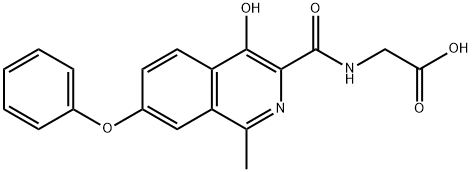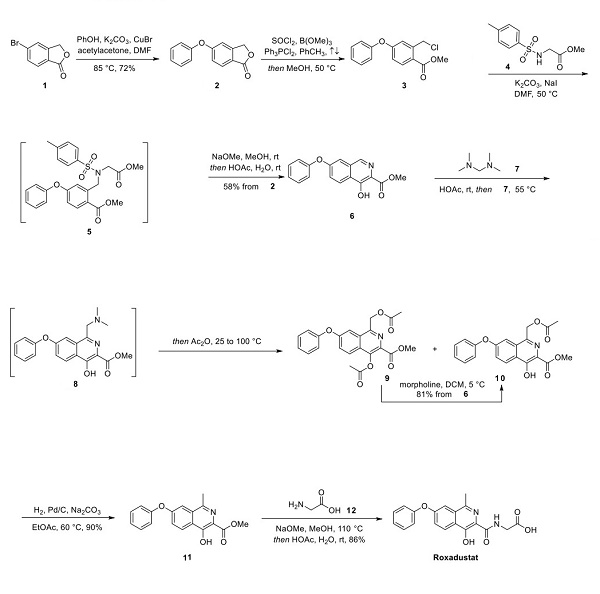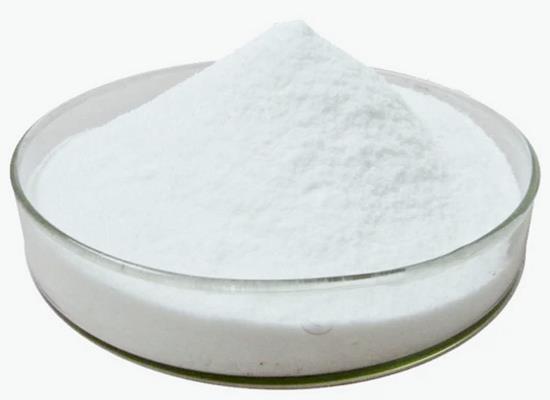Roxadustat: Indications, Mechanism of Action and Side Effects
Indications
Roxadustat (FG-4592) is an oral, bioavailable and reversible inhibitor of hypoxia-inducible factor-prolinyl hydroxylases (HIF-PHIs). It was developed by FibroGen in collaboration with Astellas and AstraZeneca. It is approved in China, Japan, Chile, Korea and the European Union (under the trade name Evrenzo) for the treatment of chronic kidney disease (CKD) anaemia in non-dialysis-dependent (NDD) and dialysis-dependent (DD) adult patients. It is also used to treat EPO-resistant anaemia, post-transplant anaemia (PTA) and chemotherapy-induced anaemia, but is still in clinical studies.
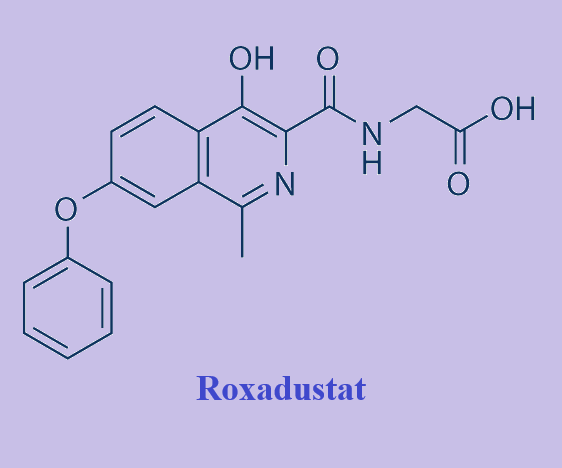
Mechanism of Action
Roxadustat's mechanism of action is to promote erythropoiesis by participating in HIF degradation, stimulating endogenous production of erythropoietin (EPO), improving iron absorption and mobilisation, and reducing haemoglobin.
Roxadustat is a potent inhibitor of HIF-PHD. Under normoxic conditions, the prolyl hydroxylase structural domain (PHD) hydroxylates the oxygen-sensitive alpha subunit of hypoxia-inducible factor (HIF-alpha), and von Hippel-Lindau tumour suppressor (VHL) recognises hydroxylated HIF-alpha, which is then ubiquitinated and degraded by ubiquitin. In contrast, Roxadustat (or hypoxia) inhibits PHD activity, leading to accumulation of HIF-α, which subsequently enters the nucleus and forms a transcriptional complex with HIF-β and the aryl hydrocarbon receptor nuclear transporter (ARNT), which then binds to hypoxia-responsive elements, thereby stimulating increased EPO production, enhanced erythropoiesis and indirectly inhibiting haemoglobin, an iron-regulated protein that is increased during the inflammatory process of chronic kidney disease. It also regulates iron transport proteins and modulates iron metabolism in patients with dialysis-dependent or dialysis-independent CKD-associated anaemia by increasing serum transferrin, intestinal iron absorption and release of stored iron.
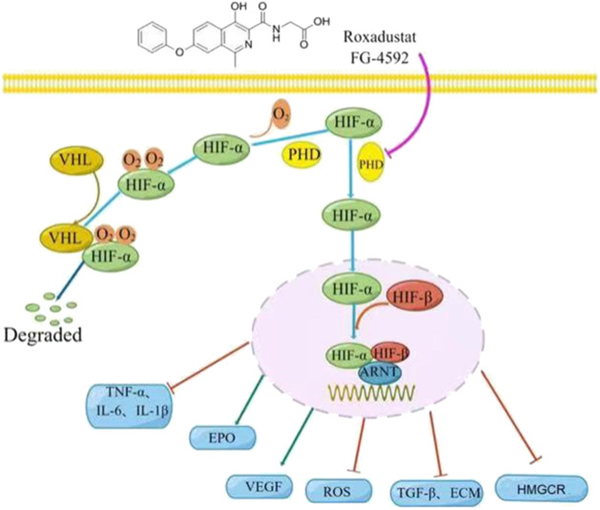
Side Effects
The most common side effects of Roxadustat include:
gastrointestinal disorders: nausea, diarrhoea, vomiting, constipation
Vascular disorders: hypertension, vascular access thrombosis (VAT)
metabolic and nutritional disorders: hyperkalaemia
Others: peripheral oedema, headache, back pain, fatigue
Common
septicaemia
insomnia
Seizures
Headaches
Deep Vein Thrombosis (DVT)
Severe Adverse Reactions
Generalised exfoliative dermatitis
Other unknown side effects
Secondary hypothyroidism
Reduced blood thyroid stimulating hormone (TSH)
Hyperbilirubinaemia
Pulmonary embolism
Overdose of Roxadustat may cause with increased heart rate, mild to moderate musculoskeletal pain, headache, increased frequency of sinus tachycardia, and less commonly, hypotension.
References:
[1] XIAOYU ZHU. Roxadustat: Not just for anemia.[J]. ACS Applied Energy Materials, 2022. DOI:10.3389/fphar.2022.971795.[2] TANG X, LIU F, LI Q, et al. Roxadustat for Patients with Post-transplant Anemia: A Narrative Review[J]. Kidney Diseases, 2023, 85 4: 307-462. DOI:10.1159/000535071.
[3] TADAO AKIZAWA. Factors affecting the doses of roxadustat vs darbepoetin alfa for anemia treatment in hemodialysis patients.[J]. Accounts of Chemical Research, 2021. DOI:10.1111/1744-9987.13609.
You may like
Related articles And Qustion
Lastest Price from Roxadustat manufacturers

US $5.00-0.50/KG2025-05-30
- CAS:
- 808118-40-3
- Min. Order:
- 1KG
- Purity:
- 99% hplc
- Supply Ability:
- 500TONS
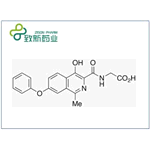
US $0.00-0.00/kg2025-04-21
- CAS:
- 808118-40-3
- Min. Order:
- 1kg
- Purity:
- >99% by HPLC
- Supply Ability:
- 10kg/month
